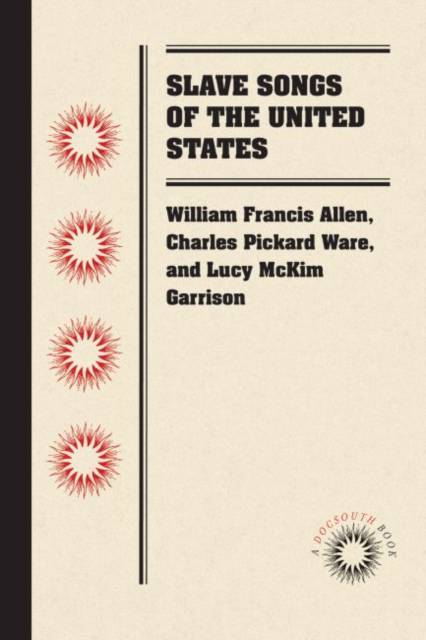
- Retrait gratuit dans votre magasin Club
- 7.000.000 titres dans notre catalogue
- Payer en toute sécurité
- Toujours un magasin près de chez vous
- Retrait gratuit dans votre magasin Club
- 7.000.0000 titres dans notre catalogue
- Payer en toute sécurité
- Toujours un magasin près de chez vous
Description
First published in 1867, Slave Songs of the United States represents the work of its three editors, all of whom collected and annotated these songs while working in the Sea Islands of South Carolina during the Civil War, and also of other collectors who transcribed songs sung by former slaves in other parts of the country. The transcriptions are preceded by an introduction written by William Francis Allen, the chief editor of the collection, who provides his own explanation of the origin of the songs and the circumstances under which they were sung. One critic has noted that, like the editors' introductions to slave narratives, Allen's introduction seeks to lend to slave expressions the honor of white authority and approval. Gathered during and after the Civil War, the songs, most of which are religious, reflect the time of slavery, and their collectors worried that they were beginning to disappear. Allen declares the editors' purpose to be to preserve, "while it is still possible . . . these relics of a state of society which has passed away."
A DOCSOUTH BOOK. This collaboration between UNC Press and the University of North Carolina at Chapel Hill Library brings classic works from the digital library of Documenting the American South back into print. DocSouth Books uses the latest digital technologies to make these works available in paperback and e-book formats. Each book contains a short summary and is otherwise unaltered from the original publication. DocSouth Books provide affordable and easily accessible editions to a new generation of scholars, students, and general readers.
A DOCSOUTH BOOK. This collaboration between UNC Press and the University of North Carolina at Chapel Hill Library brings classic works from the digital library of Documenting the American South back into print. DocSouth Books uses the latest digital technologies to make these works available in paperback and e-book formats. Each book contains a short summary and is otherwise unaltered from the original publication. DocSouth Books provide affordable and easily accessible editions to a new generation of scholars, students, and general readers.
Spécifications
Parties prenantes
- Editeur:
Contenu
- Nombre de pages :
- 224
- Langue:
- Anglais
- Collection :
Caractéristiques
- EAN:
- 9780807869499
- Date de parution :
- 01-09-11
- Format:
- Livre broché
- Format numérique:
- Trade paperback (VS)
- Dimensions :
- 150 mm x 226 mm
- Poids :
- 276 g

Les avis
Nous publions uniquement les avis qui respectent les conditions requises. Consultez nos conditions pour les avis.





